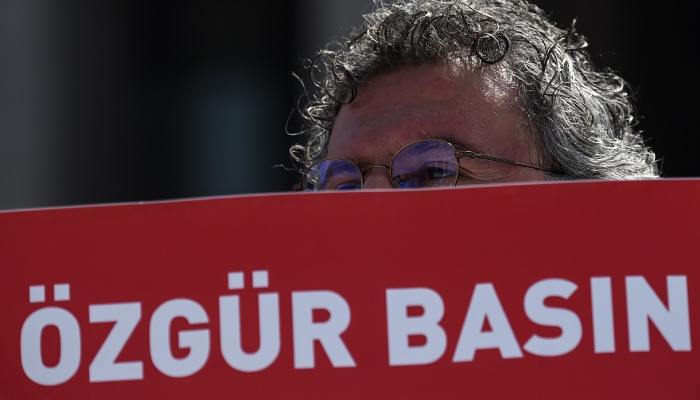The Turkish government cancelled 682 press cards between November and March, Deutsche Welle Turkish service reported on Thursday.
According to the report there were 15,423 permanent press card holders and 5,709 yellow, or temporary, press card holders in November 2018. In March 2019, these figures fell to 14,759 and 5,691, respectively.
New regulations made it harder to obtain accreditation, which is necessary for both domestic and foreign journalists to be able to participate in official press briefings at the presidency, parliament and other government agencies.
Furthermore, foreign journalists need press cards in order to obtain residence permits and may have to leave the country if their accreditation is canceled.
Vague clauses such as “behavior that goes against the public order” were inserted in the regulations as grounds for cancellation along with many provisions from the Turkish Penal Code.
After the introduction of a presidential system of governance last year, the government agency that receives and handles press card applications was put under presidential jurisdiction and was renamed the “Directorate of Communications.”
Its authority was also extended in that it now has the ability to deny press cards even to journalists who fulfill all the criteria in the regulations.
Veysel Ok, founder and co-director of the Media and Law Studies Association (MLSA), has challenged the provision at the Council of State as being in contravention of Article 10 of the European Convention on Human Rights (ECHR).
Speaking to DW, Ok said that press cards are used by the Turkish government as a manipulative tool to further pressure journalists.
He also pointed out that the government’s narrative against criticism relative to press freedom hinges on accreditation in the sense that only those who have press cards are considered to be journalists.
“In their statements abroad they claim that there are no imprisoned journalists because no one with a press card is under arrest,” Ok said.
Many journalists, writers and cartoonists who face terrorism-related charges for their critical publications risk having their press cards revoked.
Turkey has become the largest jailer of journalists in the world according to several international rights groups, including Reporters Without Borders (RSF) and the Committee to Protect Journalists (CPJ) since a 2016 coup attempt that gave President Recep Tayyip Erdoğan’s government increased authority to use counterterrorism laws against journalists.



